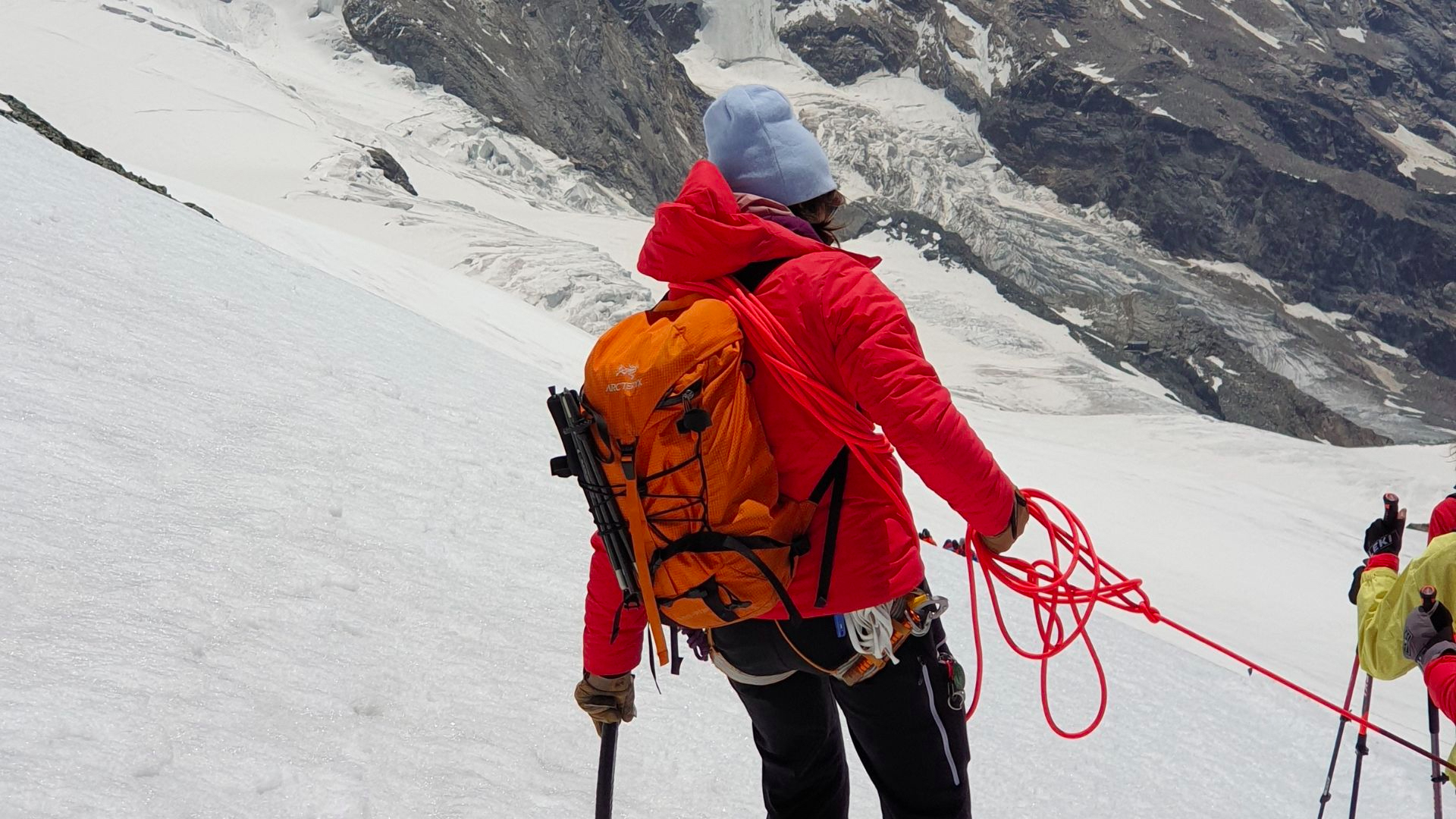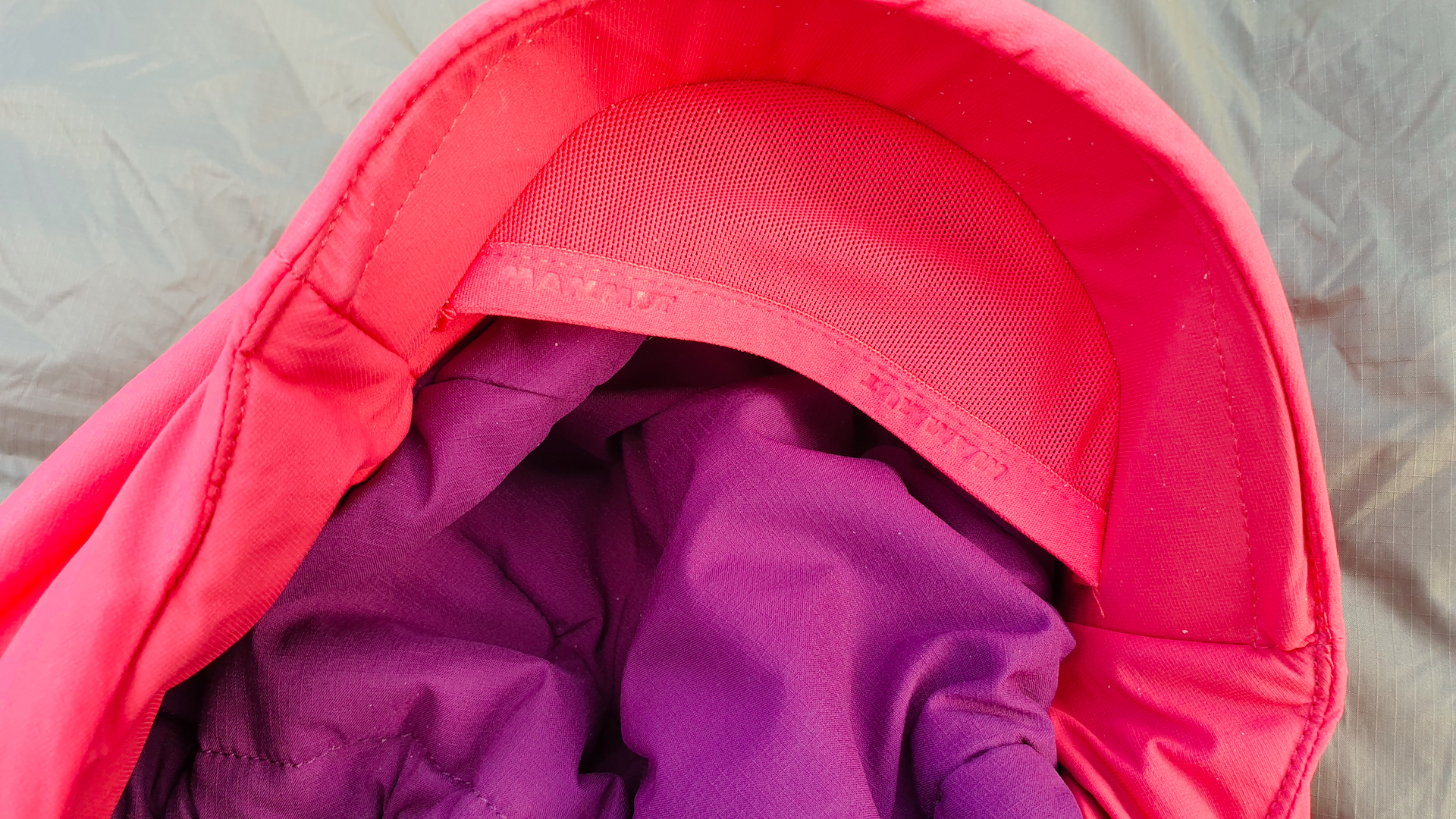Advnture Verdict
A simply designed but extremely effective synthetic jacket. This is a great choice for a very packable, reliable jacket for alpine endeavors.
Pros
- +
Recycled and bio material used in the fill
- +
Synthetic insulation is warm even when the jacket is damp
- +
Alpine-style cut
- +
Packable into provided bag
Cons
- -
Stiffened (but not wired) peak on hood
- -
Pockets can get obstructed by backpack strap
You can trust Advnture
Mammut Women’s Rime IN Flex Hooded Jacket: first impressions
The Mammut Women’s Rime IN Flex Hooded Jacket has an alpine fit, a helmet-compatible hood and a filling made from a super-warm synthetic insulating fiber that Mammut calls Rime Flex, making it a serious contender for one of the warmest puffer jackets around.
• List price: $289 (US) / £235 (UK)
• Weight: 450g / 16oz
• Materials: Nylon fabric outer shell
• Fill: Pertex Quantum Air lining (recycled polyester fibers and renewable plant fibers)
• Colors: Grape / Cheetah / Marine Black
The Mammut Rime In Flex Hooded Jacket is a synthetic insulated jacket with an alpine cut and feel. The outer shell is a lightweight but hard-wearing nylon fabric and the lining is made of Pertex Quantum Air, making the jacket “particularly breathable, extremely light and compressible”, according to the marketing blurb (see also: Down vs synthetic insulation: which is best for keeping warm?).
The Rime Flex filling is a combination of recycled polyester fibers and renewable plant fibers, which helps keep you warm even when the jacket is wet, while “stretch fibers and a slightly lower insulation density on the arms ensure that you can move freely”. The Rime IN Flex also has two decent-sized zip pockets at the waist and a small chest pocket, also with a zip.
Mammut Women’s Rime IN Flex Hooded Jacket: on the hills

The Mammut Rime IN Flex Hooded Jacket is currently the warmest of its type in Mammut’s range, making it a great choice for cold, damp days and summer alpinism. But honestly, it’s great anywhere you might need a medium weight synthetic jacket – my one has been used everywhere from chilly bivy mornings in Snowdonia to summiting a windy 4,000m peak in the Alps.
I found the jacket particularly breathable, extremely light and compressible. It comes with its own stuff sack that has two karabiner loops for easy carrying. The impressively eco-friendly fill (a mix of recycled manmade fabric and biomaterial located between the quilted inner lining and the light outer fabric) really lofts.
The jacket has two decent-sized zip pockets at the waist and a small chest pocket, also with a zip. However, I found that the two main pockets did often end up under my backsack strap, even though they are supposed to be harness and backpack compatible.

The jacket hood is big enough to take a helmet, with adjustable elastic and toggle at the back of the head. The peak is stiffened and held in place on your head with an elasticated mesh at the front of the peak. This may sound a bit odd but it is a really effective way of keeping the hood in place snugly, without the faff of adjusting front draw cords. It also means you never get whipped in the face by an elastic cord. I’m very taken with its adaptability.
A similar use of elasticated cuffs makes for a simple but stylish cut at the end of the sleeve without the need for Velcro. Toggled elastic also allows you to cinch in the bottom of the jacket to keep the wind out.
The outer shell offers wind resistance and light waterproofing. It won’t stay dry in a downpour, but at least it will still keep you warm – one of the key benefits of a synthetic jacket.
An adventure writer based on Dartmoor, England, Emily is an active member of Mountain Rescue and a summer Mountain Leader, but loves all things adventure – before her third birthday she had lived on three continents. Founder of Intrepid magazine, she works to help break stereotypes about women in the outdoors. Her expeditions have included walking all Dartmoor’s 119 tors in a single two-week outing, cycling to Switzerland and back, and riding the Rhine from source to sea.


